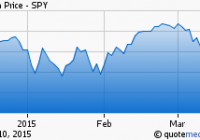Vietnam Holding On Vietnam’s Upcoming Removal Of Foreign Ownership Limitations
Vietnam will remove the foreign ownership limitation this September, allowing foreign investors to own 100% stakes of companies in certain industries. This event will serve as a major catalyst for increased foreign investment in Vietnam, and its future upgrade to an emerging market. I had the pleasure of interviewing Ezra Vontobel and David Kadarauch of Vietnam Holding Asset Management to gain further insight on the removal of the FOL in Vietnam next month. September 2015 marks the beginning of significant change for investment in Vietnam, as the foreign ownership limitation will be removed, allowing foreign investors to own 100% stakes of companies that were previously limited to 10-49% foreign ownership. Foreign investors have previously been willing to pay a premium of up to 20% for highly desired companies, such as Vinamilk, which have full foreign ownership. This event will serve as a significant catalyst for increased foreign investment in Vietnam, which is currently not the most sought after destination in Asia for foreign investment. I am personally very optimistic about Vietnam’s economic future, and believe the current potential of Vietnam is being relegated, as Asian hedge funds are focusing more on other countries in this region. While the removal of the FOL will not be fully implemented in September and the procedures for removal are still not entirely clear, this is certainly a significant step for Vietnam, and will help increase its status from a frontier to emerging market. There will still be restrictions within certain industries, such as the banking industry. Next month simply marks the initiation of changes necessary for Vietnam to allow foreign investors to have full ownership of companies. I had the pleasure of interviewing Ezra Vontobel and David Kadarauch of Vietnam Holding Asset Management to gain further insight on the removal of the FOL in Vietnam next month. Vietnam Holding is an investment company with shares listed on London’s AIM Market and Frankfurt’s Entry Standard. The company is a value investor that incorporates environmental, social, and governmental standards in investment. The company’s high emphasis on creating social value is further edified by the Vietnam Holding Foundation, which supports projects including arthroscopic surgery training and an orphanage based in Thailand. The company currently has approximately 20% of its assets invested in companies that are fully held by foreign investors, including Vinamilk, DHG Pharmaceutical, FPT Corporation, and Viconship. Dylan Waller : In addition to specific industries not removing the foreign ownership limitation, specific companies may also decide not to open up additional shares to foreign investors. Can you predict companies that may react in this manner, and the reasoning behind it? David Kadarauch : Each company’s controlling individual(s) will have his/her own views, based simply on attitudes to foreigners as much as anything else. Also, companies with a big SCIC stake might be less likely to move to a FOL rise. Waller : Do you anticipate a sharp rise in stock prices of companies fully held by foreign investors this month, as a result of domestic investors rushing to buy before the FOL is removed? Kadarauch : Case by case only – not generally. Waller: Do you see the removal of the foreign ownership limitation as a major catalyst for an increased entrance of investment from Asian hedge funds? Kadarauch : Yes – as long as progress on codifying the new law’s sector-by-sector guidelines is reasonably efficient, and results in a significant new percentage of market cap being freed up to foreigners. Waller : With the removal of the FOL coming in September, other investment opportunities may be relegated, as attention will be focused on companies that are currently fully held by foreign investors. As a value based investor with approximately 20% of your portfolio currently invested in companies fully held by foreign investors, do you see equal or even greater value in other high growth companies with lower valuation, such as Hoa Phat Group or Petrovietnam Drilling and Well Services? Ezra Vontobel : There are plenty of interesting stocks on attractive valuations in Vietnam’s ca. 700-company stock exchange. VNH owns the two you mentioned. Waller : Do you think that the Thai model of Non-Voting Depository Receipts will ever emerge in Vietnam, specifically as a solution for foreign investors to invest in companies in the banking industry? Vontobel : It would make sense to us for Vietnam to have such a system, but it doesn’t look to be currently on the table. We say it would make sense because ultimately foreign control is what FOLs are designed to prevent, and a well-designed NVDR system, where NVDRs could be voted by management in contested votes, would fulfill the objective, while freeing up the market for foreigners who don’t mind not having a vote (some, but not all). Editor’s Note: This article discusses one or more securities that do not trade on a major U.S. exchange. Please be aware of the risks associated with these stocks. Disclosure: I/we have no positions in any stocks mentioned, and no plans to initiate any positions within the next 72 hours. (More…) I wrote this article myself, and it expresses my own opinions. I am not receiving compensation for it. I have no business relationship with any company whose stock is mentioned in this article.
